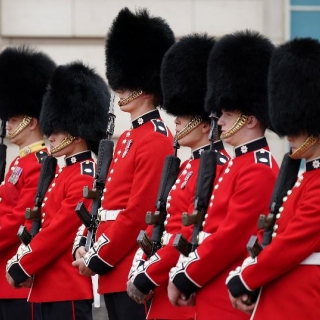


GBP/USD pair extends its downside to near 1.2580 during the early European session on Friday. Tariff uncertainty from US President Donald Trump undermines the Pound Sterling (GBP) against the US Dollar (USD). The US Personal Consumption Expenditures (PCE) Price Index for January will be the highlight later on Friday.
Trump met with UK Prime Minister Keir Starmer late Thursday, and President Trump was quick to announce that there might be trade tariffs imposed on the UK as well unless ambiguous terms of a trade deal with the US are agreed upon within an undetermined deadline. Investors will closely watch the developments surrounding further Trump's policies. Any signs of escalating trade tensions could lift the Greenback and create a headwind for GBP/USD.
Data released by the US Bureau of Economic Analysis (BEA) on Thursday showed that the Gross Domestic Product (GDP) expanded at an annual rate of 2.3% in the fourth quarter (Q4). This figure matched the initial estimate and came in line with the market consensus.
Looking ahead, investors will take more cues on the US PCE inflation data for January, which is due on Friday. This report could influence market speculation for the Federal Reserve's (Fed) monetary policy outlook. According to the CME FedWatch tool, the markets are now pricing in nearly
68% odds that the Fed will cut its interest rate in the June policy meeting after holding them in the March and May meetings.
The single most important factor influencing the value of the Pound Sterling is monetary policy decided by the Bank of England. The BoE bases its decisions on whether it has achieved its primary goal of "price stability" a steady inflation rate of around 2%. Its primary tool for achieving this is the adjustment of interest rates. When inflation is too high, the BoE will try to rein it in by raising interest rates, making it more expensive for people and businesses to access credit. This is generally positive for GBP, as higher interest rates make the UK a more attractive place for global investors to park their money. When inflation falls too low it is a sign economic growth is slowing. In this scenario, the BoE will consider lowering interest rates to cheapen credit so businesses will borrow more to invest in growth-generating projects.
Source: Fxstreet
Gold prices rose sharply again on Tuesday (January 20th), hitting a new record, breaking through the psychological barrier above $4,700 per ounce. This rise was driven by a "flight to safety" as geopo...
GBP/USD strengthened to around 1.3480 at the start of Friday's Asian session, holding above 1.3450. This strengthening occurred as the US dollar weakened again, as markets became increasingly confiden...
The GBP/USD exchange rate moved steadily around 1.3465 in early Asian trading on Wednesday (December 31). This relatively calm movement occurred because trading volume was expected to be thin ahead of...
The British Pound (GBP) softens against the US Dollar (USD) on Wednesday, with the Greenback finding mild support amid reduced liquidity during the shortened US holiday session. At the time of writing...
Pound Rebounds, UK Data Determines GBP/USD strengthened after three consecutive days of declines. In Monday's Asian session, the pair traded around 1.3394, approaching the 1.3400 level, ahead of the ...
Gold prices briefly caused a stir after hitting a new record, but then slowed. The main trigger: US President Donald Trump withheld the threat of tariffs on Europe and claimed there was a "framework" for a future agreement on Greenland. This calmer...
Oil prices were little changed in Asian trading on Thursday after US President Donald Trump backed down from a threat to impose tariffs on European countries over Greenland. This decision helped ease geopolitical tensions and improve market...
The Nikkei 225 Index climbed 1.73% to close at 53,689, while the broader Topix Index rose 0.74% to 3,616 on Thursday, snapping a five-day losing streak as Japanese shares were lifted by a strong rally in chip and artificial intelligence related...